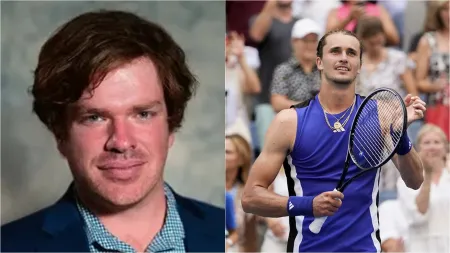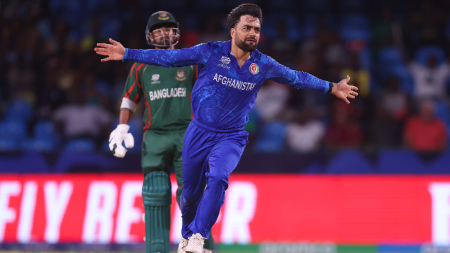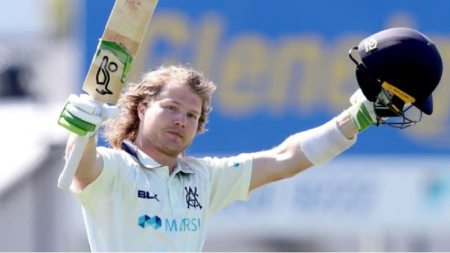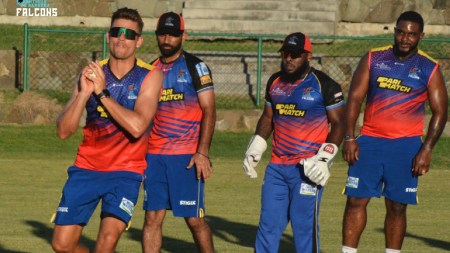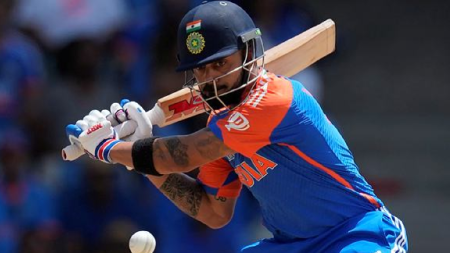Why Richard Hadlee was moved to tears when he gave Lou Vincent a special cap
In the haze of depression a few years ago, Lou Vincent couldn’t imagine a night of redemption like this. A night when Sir Richard Hadlee, New Zealand’s greatest cricketer, handed over a commemorative cap for featuring in a century of ODIs, when the legend shed tears for a talent he once unearthed; and when finally, he could smile without a crushing weight in his heart.
The former cricketer, whose life ban for match-fixing was lifted last December, stifled tears as he said: “Richard… for you to take time out and fly to Auckland to want to present this cap to me is so, so humbling and a reflection of the great man you are. Sir Richard Hadlee in tears! It was a really powerful night.” Vincent couldn’t hold his tears back for too long either.

The 45-year-old is not the man he once used to be. His hairline is receding — the blond locks that danced when he lunged to pluck a catch from thin air exist only in the memory of the audience he once thrilled. His eyes that once sparkled of youthful energy and judged the length of a bowler sharply, look tired and vivid with his struggles.
Since his last international game — his 102nd ODI in December 2007 — he has waged several wars, mostly with himself. The same year, he joined the Indian Cricket League (ICL). He confessed he got himself dragged into the sinister web of bookies and fixers, encouraged allegedly by his teammate Chris Cairns. “From that moment on, I was in a battle with myself,” he would confess in a television interview.
His then wife Eleanour Riley pleaded with him to refrain from the gang. He didn’t listen. “Lou kept saying, ‘don’t worry, we’re all doing it’,” she said in her testimony to the court.
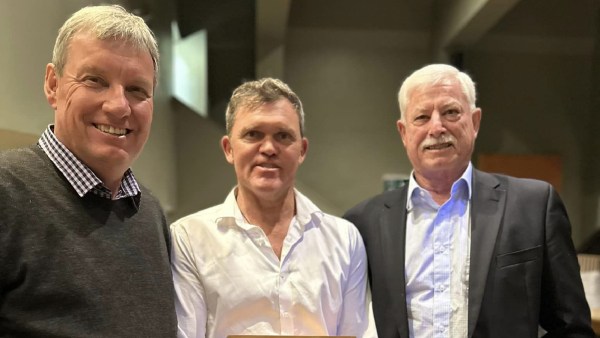 Lou Vincent (centre) with Sir Richard Hadlee (On the right)(Credit: Joey Yovich)
Lou Vincent (centre) with Sir Richard Hadlee (On the right)(Credit: Joey Yovich)
The marriage subsequently tapered off. But in reality, he couldn’t shake off the ties, despite some of his national teammates confronting him after rumours began to float that he was involved with murky gangs. “It was a young and silly time in my life, and we all do things we regret, but I have owned it and turned my mistakes into a positive,” he told stuff.co.nz
Some of his friends realised the complexities. “Once you’re in that network of (match-fixing)], you’re screwed. Lou had everything to lose – a wife and two kids – and they do whatever it takes. They’ll take photos of you in compromising positions, they’ll threaten to release them to the media, they’ll ruin your life,” Andre Adams, one of his closest friends, told New Zealand Herald. After the confession in 2014, Vincent deployed armed guards, fearing backlash from the betting syndicate.
The ICL was soon banned, so were the players. He sought refuge in the English county circuit. But the network was so vast that he continued releasing match-related information to the bookies. By 2011, he slumped into bouts of depression. The next year, he got out of the malaise and organised a bus tour around the UK where he travelled for six months promoting mental health awareness and raising money for charity.
But the demons relapsed, and in 2014 he admitted to 18 charges of fixing in a letter to the England and
Wales Cricket Board. The opening line was haunting: “I am Lou Vincent. I am a cheat.”
He was soon banned from the sport. But peace still evaded him.
“I thought it would liberate me, but it didn’t and I slumped into alcoholism,” he said. He soon split with his wife, and “more than once thought of taking my life.” Some of his friends, like Adams, fearfully scanned the obituary pages of the newspaper during a period when Vincent went utterly incognito. “No texts, no calls, no one knew where he was, we were worried. Then out of the blue he would call up,” Steven Pearson, a club wicketkeeper and friend of his, once told this newspaper.
In a relatively cheery mood, Vincent, who announced his arrival with a dazzling century on debut in Perth in 2001, decided to travel around the country. In one of the journeys, in a bus, he bumped into Jilly Hart, a tourist from Scotland. Love blossomed and soon after the first wave of the pandemic subsided, they moved into Lumsden, a town of just 550 people in rural Southland. He renovated a deserted 100-year-old railway cottage into their home, repurposed a retro caravan to a mobile hairdressing salon, called The Hair Box, for his fiancee, and entered the real estate business.
Cut off from the past and the people he knew, he found peace in the humble countryside.
“It’s all just about having an easy life. A drama-free, easy life, and I’ve found the right place to do that,” he told stuff.co.nz.
He tried to banish cricket from his life, but cricket kept coming back. He joined the Lumsden club and often turned up against neighbouring town Mossburn. “I just love it. It’s a bunch of farmers and contractors but man they are tough, and it is great competition,” he said, jokingly.
After his ban was lifted last year — an appeal process that began with his former teammate Brendon McCullum’s 2016 Spirit of Cricket lecture — he turned up for his childhood club, Seddon Cricket Club, in Auckland, for a five-day ‘test match’ in support of men’s mental health last February. Seven months later, he had his night of redemption too.
Disclaimer: The copyright of this article belongs to the original author. Reposting this article is solely for the purpose of information dissemination and does not constitute any investment advice. If there is any infringement, please contact us immediately. We will make corrections or deletions as necessary. Thank you.
